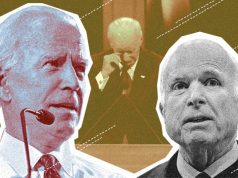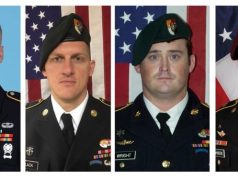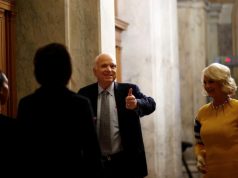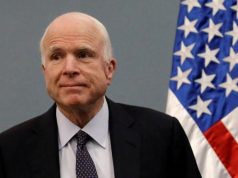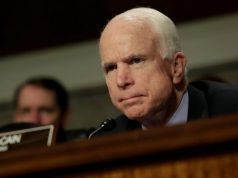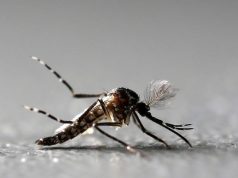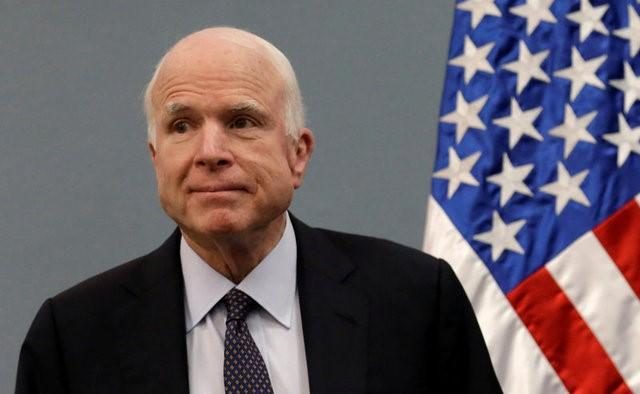
Filipino leaders were among those who expressed their thoughts and prayers following the death of United States Senator John McCain on Sunday.
The Republican lawmaker from Arizona passed away on Sunday at the age of 81, succumbing to a battle with brain cancer that had lasted more than a year. He had been serving in a reduced capacity in Senate since 2017, following 35 years in politics.
Foreign Affairs Secretary Alan Peter Cayetano in a statement called McCain “a true friend and champion of the Philippines.”
Cayetano pays tribute to John McCain: A true friend and champion of PH: https://t.co/hxuwEJOejS
Secretary Cayetano: We deeply mourn the death of @SenJohnMcCain, a true friend of the Philippines and one of our champions in the United States Congress. pic.twitter.com/EOJmzm7YWW
— DFA Philippines (@DFAPHL) August 26, 2018
Cayetano cited McCain’s support for the peace process in Mindanao as a sign of the late legislator’s commitment to the US-Philippine ties.
McCain, prior to his death, had met with a delegation in the Philippines working on the two countries’ partnership.
A number of war veterans lobbying for the return of the Balangiga Church Bells taken by the US as war booty during the Philippine-American War were reportedly seeking McCain’s help in the years before his death.
Sen. Bam Aquino also expressed his thoughts on McCain. In a tweet, he posted a picture with McCain taken in 2014 and recounted how the late US senator gave him advice.
Rest in peace @SenJohnMcCain. I still take to heart your advice to this newbie Senator last 2014: Always find time to connect with your constituents. You’ve made genuine connections with so many, and your courage and humility will be remembered. pic.twitter.com/fvJQzH37Yd
— Bam Aquino (@bamaquino) August 26, 2018
Sen. Richard Gordon in a series of tweets shared his thoughts on the legacy left behind by McCain.
I am deeply saddened by the demise of Senator John McCain whose example of leadership, courage and commitment should be a beacon to everyone. I join the rest of the world in mourning his passing.
— Richard J. Gordon (@DickGordonDG) August 26, 2018
Gordon in his tribute called McCain “a great statesman” and commended the late senator for standing his ground on what he believed in.
McCain’s legacy
John Sidney McCain III was born into a military family. His father John McCain Jr. was a navy admiral who fought in the Pacific theater of war during World War II and fought Japanese fleets near Philippine territory.
McCain was a pilot during the Vietnam War. In October 1967, McCain was flying during a bombing mission when his plane was struck by Vietcong.
Badly injured, he was discovered by the enemy and was held in captivity for five years. He was subjected to torture during his time as a prisoner of war.
He was awarded military honors upon his release and served as liason to the Senate for a while, but his injuries prevented him from furthering his career in the Navy.
He entered politics in 1982 as a representative of Arizona and was elected to the Senate four years later.
He was the Republican Party’s nominee in the 2008 presidential race but lost to Democrat Barack Obama.
Throughout his career in the legislature, McCain was known for being a moderate conservative who disagreed with his party on certain issues. He was criticized by some for advocating overseas military intervention.
He became a critic of party-mate President Donald Trump in recent years.




